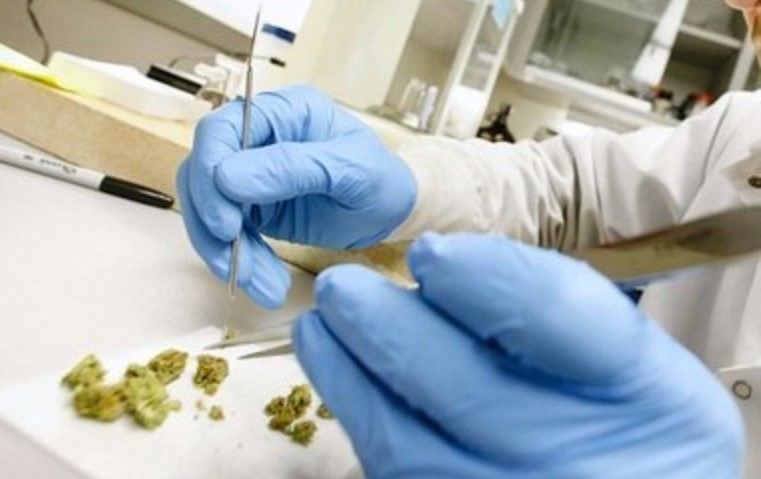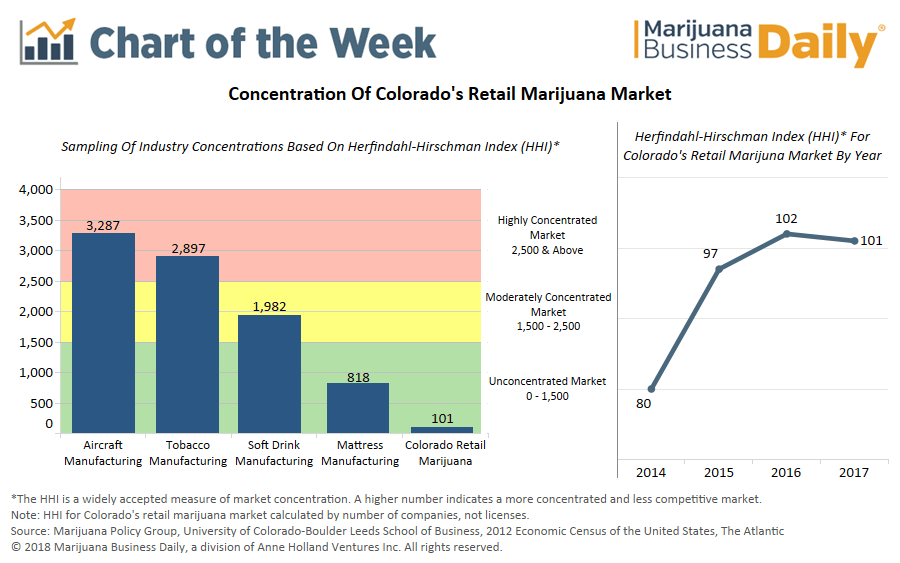A pair of voluntary California cannabis product recalls in late July sparked concerns in the industry that other companies would be put in similar situations – and end up spending time and money to ensure their products arrived on retail shelves.
Three testing lab executives told Marijuana Business Daily that such fears are likely overblown and that recalls will become less of a risk once the state’s Metrc track-and-trace system gets up and running and MJ regulations take shape.
“Recalls at this stage … are more due to a misunderstanding of the regulations right now,” said Zach Eisenberg, vice president at San Francisco-based Anresco Laboratories, which tested the pre-rolls involved in one of the recalls.
Here’s what you need to know about the situation:
1. Latest recalls were exceptions and not the norm.
Eisenberg noted that regulators aren’t independently testing products, but the Bureau of Cannabis Control has begun double-checking data submitted by labs like his – called “certificates of analysis” – on products that have undergone testing. The chances of that oversight leading to a recall are getting slimmer as the process is streamlined and as stakeholders’ understanding of regulations grows.
“The incidents that caused the first two recalls will be less likely to occur,” Eisenberg said.
What also isn’t happening on a widespread basis are recalls due to differing lab results, Eisenberg said.
“People shouldn’t be overly concerned that all their products are going to be recalled because the Bureau of Cannabis Control (BCC) is getting different reports from labs,” he said. “That’s not the case. At least not right now, because they’re not doing any auditing of results.”
Eisenberg and executives from two other labs noted that the recalls were voluntary, as opposed to having been ordered by regulators – meaning the companies were taking extra precautions to avoid future trouble with their supply chains or a potential public relations nightmare, or both.
Details surrounding the recalls remain murky.
BCC spokesman Alex Traverso said the agency is still investigating the circumstances involving both companies, which voluntarily announced their products had failed testing and somehow made it to retail shelves.
Traverso declined further comment, so there’s no clarity on when or under what circumstances the state may begin mandating recalls.
2. Significant gatekeeper policies are in place to avert potential recalls.
Sam David, president of Coastal Analytical in San Diego, said one reason companies shouldn’t be concerned is because procedures already in place require licensed distributors to have all products tested by labs and obtain a passing grade before shipping those products to retailers.
That should act as enough of a gatekeeper, he said.
“Basically the supply chain controls it. So a distributor won’t move product from a supplier to a retailer if it doesn’t have the correct lab results,” David said. “The only way that a recall would have to happen is if there’s some reason to believe that the analysis – the initial release – was not accurate.”
That is apparently what happened with Anresco in one of the July recalls, according to David Elias, the CEO of Lowell Herb Co.
Lowell recalled pre-rolls after Anresco apparently changed the status of two stock-keeping units (SKUs) to “fail” after passing them two weeks earlier.
But Anresco’s Eisenberg said contractual obligations with Lowell prevented him from disclosing exactly what happened, and Elias declined to comment further for this story.
But Swetha Kaul, chief scientific officer for Santa Ana-based Cannalysis Labs, said she expects more product recalls in part because there are licensed distributors that have a stake in skirting the rules.
“I don’t think this is the last recall,” observed Kaul, who also co-chairs the California Cannabis Industry Association’s quality control committee.
“The truth of the matter is even though we’re testing as a lab, we as a lab are not quarantining (products). It’s in a distribution facility. And if the distributor is vertically integrated and has a retail storefront, it’s very easy for them to pass (product) on to retail without necessarily getting the OK of a lab.”
3. Regulatory issues are still being worked out – and labeling requirements could prove costly.
All three lab executives agreed regulatory holes must be ironed out, and the two product recalls are mostly an indication of systemic flaws.
For instance, Eisenberg said, regulations from the BCC and the state Department of Public Health – which oversees edibles makers and concentrate producers – “don’t work in tandem. It makes it essentially impossible for a manufactured product to get a passing result for potency.”
That’s because, he said, manufacturers are required to pre-label edibles and concentrates with both THC and CBD percentages before sending to distributors.
When a distributor sends those products to a lab, BCC regulations require that all results be within 10% of whatever percentage is on the label. If the lab results are outside that margin of error, the product technically fails and must be relabeled.
That regulation has been a headache for producers, especially those that have very low to little CBD.
For instance, plenty of cannabis products have less than 1% CBD. That means if a product is labeled as 0.1% CBD but the test finds there’s actually 0.3%, that falls outside the 10% margin for error and means the producer will have to pay for a new label.
“For all these manufactured products, that’s a huge issue,” Eisenberg said, “because on one hand, they’re required to label before they’re tested, and on the other, they know their labels are probably going to be different from the test results.
“The double-label is costing money. It’s costing time, and there’s no real public health benefit that’s resulting from all of this.”
4. Standardized testing in flux with labs following different procedures.
California has no universal testing standards or methods, meaning testing practices often differ among the state’s 33 licensed labs.
Many are using methods suggested by companies that manufacture the testing equipment purchased by those labs, or the labs have been developing – and closely guarding – their own testing procedures, said Coastal Analytical’s David.
But that’s arguably a Band-Aid until the state can figure out universal procedures for labs to use, Cannalysis’ Kaul said.
Kaul also raised questions about sampling methods that vary from labs to distributors to producers that are getting testing done during their R&D phases, differences between how the various phases of testing are performed, and other systemic issues due to ongoing fluidity of changing regulations.
“Right now, there’s this definite feeling that the regulations may have gone a touch too far and not let us catch up to what the regulations demand, and that’s definitely one of the reasons (these recalls) happened,” Kaul said.
5. Words from the wise to avoid product recalls.
Asked what their best advice for other California companies would be on how to avoid recalls, here’s what Eisenberg, David and Kaul suggested:
- Test multiple times during the production phase to get as clear a picture as possible before sending product to distributors.
- Don’t shop around at different labs looking for the same results. Instead, develop a close relationship with one lab and get to know its procedures.
- Use the same lab for testing during research and development and later for compliance; this means checking beforehand with a distributor to see which lab it will use for compliance testing.
- Keep detailed records of every test and step taken in the production process, so as to streamline production and ensure a replicable outcome each time.
John Schroyer can be reached at johns@mjbizdaily.com





